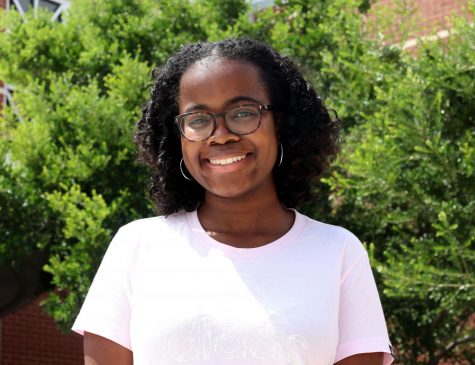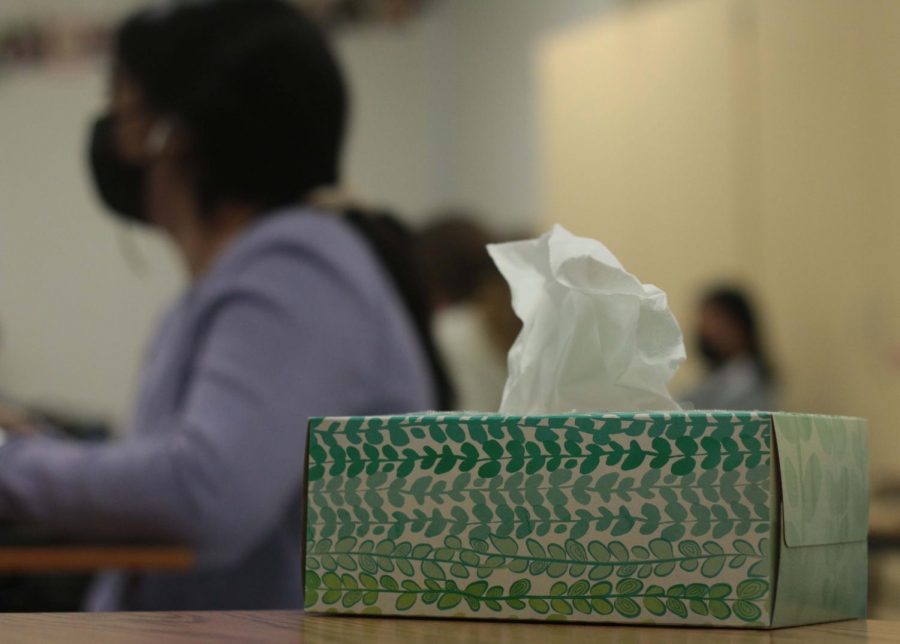Teachers, students reflect on Covid-19’s impact, long-term influence on school culture
With LISD offering a more structured type of virtual school for the 2021-22 school year, next year is expected to be a step closer to normalcy for students, but students are still holding on to a few lessons from COVID-19. In a poll of 145 in-person students, 69.6% of respondents agreed that their health and safety are more important to them than school and grades.
“There is [a high school hustle culture,] especially in upper-level classes,” in-person junior Veronica Cavanaugh said. “I definitely think that COVID has given people some perspective of the fact that school isn’t everything, [and that] the health and well-being of other people matters.”
Lead attendance clerk Mary Jo Hill agrees that this year has shifted students’ and parents’ perspectives of the importance of in-person attendance. The overall attendance percentage for the 2020-21 school year as of May 11 sits at 96%, a 1.5% drop from the 2019-20 school year.
“I think we’ve seen a little bit of an increase in students taking days [off] just because they need a break,” Hill said. “We have seen an understandable increase in medical visits and sick days.”
The aforementioned poll also found that 57.9% of respondents are more comfortable missing in-person school because of the availability of WebEx and other virtual learning alternatives than they were before these resources. This newfound willingness to be absent may have led to more necessary sick days, but the ability to simply “WebEx-in” could also prompt students to unnecessarily skip in-person school.
“I like to think that’s a small group of people that are somewhat blasé about [being sick], but I think we’re always going to have that,” Hill said. “It goes back to how do you gauge the way that you’re feeling and how do you then determine what’s the best decision to make, especially when you’re limited to the number of days you can be out.”
Poll results showed some students recognized a new sense of social responsibility and consciousness of the impact one sick person can have: 48.3% of respondents said they had come to school while sick at some point in their life. When asked if they believed it was morally acceptable for someone to come to school knowingly sick with a contagious illness other than COVID-19, 41.4% said it depends and 45.5% said they believe it is not morally acceptable.
“There’s now this sense of social responsibility when it comes to being sick,” in-person junior Veronica Cavanaugh said. “If I’m being honest, I never really felt bad about coming to school sick; I would never miss a day of school unless I absolutely had to. Now, hopefully, there’s not going to be as much of a flu season because people will be like, ‘Oh I have to stay at home.’ And they won’t feel bad about staying at home because hopefully their teachers will let them WebEx in.”
A shifting approach to sick days is not the only change COVID has brought: the different learning pathways incited concern about academic equity, and some teachers extended more grace to in-person classes in an attempt to keep their students on a level playing field.
“I know some teachers are being more lenient with late grades and I think that that’s awesome because there are so many circumstances that the district doesn’t account for,” Cavanaugh said. “I think COVID has changed that in a good way.”
The accommodations teachers have implemented worry some: Latin teacher Courtney Herring said the academic leniency some teachers have implemented, such as open-note tests for all students, will cause a difficult transition back to traditional school for both virtual and in-person students.
“Expectations we said would be there were not there for all students,” Herring said. “We said we were not going to take late work after [a certain time], but then we’ll take anything. [They said] ‘attendance is going to be counted and required,’ but then as long as you do something by 11:59, you’re present. We have lowered the expectations of regular school. It’s so hard to raise it back up.”
Despite this year’s changes in attendance patterns and standards, Hill said she does not think these changes will be long-lasting.
“Attendance for the district is about funding, but also it’s about loss of credit and truancy,” Hill said. “It’ll be interesting to see how families adjust back to our old expectations, to see how they manage and what their priorities are going to be.”

Senior Katherine Parker is the managing editor and this is her second year on staff. She loves journaling and spending time outdoors. In her free time,...



